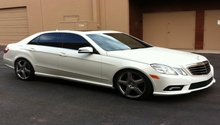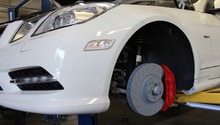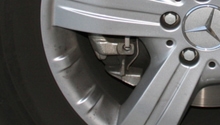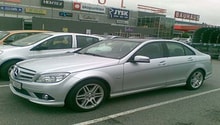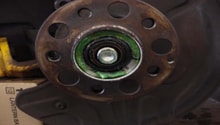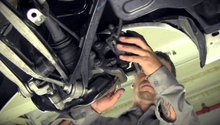Mercedes-Benz C-Class: Why Are My Wheels Squeaking?
The brake and suspension components of a car get put through a lot of stress and friction, even on the smoothest as well as slowest drive. So therefore, they could start making annoying noises for a few reasons. Here are the most common reasons causing the wheels on your Mercedes-Benz C-Class w205 to squeak.
This article applies to the Mercedes-Benz C-Class w205 (2007-Present).
There are few things less annoying than wheels that squeak. But whether it's your car or the car that just pulled up next to you at the light, something must be done! Wheels squeak due to multiple reasons and on different occasions. Maybe it only happens while braking, or when you turn, or (sometimes) even while driving down the street. There is usually one thing in common that all those squeaks share. Here is the compiled reasons of why wheels usually squeak.
Materials Needed
- Jack and jack stand
- Lug nut wrench
- 12mm and 15mm sockets
- Ratchet wrench
Does it Squeak While You're Driving?
The parking brake could need adjustment.
The parking brake is a small set of drum brakes located inside the rear disc brakes of the car. Usually, if the parking brake is too loose, the brake won't hold and nothing will happen. But if the parking brake is too tight, it could act as if the parking brake was never released; therefore, it rubs against the drum and creates a loud squeaking sound.
To diagnose, sit in the driver's seat, apply the parking brake, and make sure it actually holds the car back under idling or very soft acceleration. If it doesn't, then it's too lose. But if you feel the brake engaged even when you fully removed it, then it's a sign that the brake is overly tightened. You must jack up the car, remove the tire as well as rotor, and adjust the parking brake. Or, you could visit the dealership for service.

Do the Wheels Squeak When You Turn?
The wheel bearings could be worn out.
The differential in your Mercedes-Benz are designed to let the car handle at its finest by letting the inside wheel turn slower than the outside wheel, while going through a turn. The differential turns the axles, which rotate the tires, and then rely on wheel bearings to make sure the wheels spin as they should. Sometimes, these bearings run out of grease and start eroding away. Once the bearings erode, they can make loud squeaking noises while turning the car. It is recommended visiting the dealer or a repair shop for diagnosing and replacing wheel bearings.

Pro Tip
Replacing a bearing requires special knowledge and specialty tools, so you may be better off visiting a repair shop for this issue.
Does it Squeak When Braking?
Your brake pads could be failing.
Most of the time when there is a squeak or squeal coming from the wheels, nine out of ten times it's brake related. Whether the brake pads are worn out and they are warning you to replace them, or the actual pad may have been unsettled from its place inside the caliper, the squeaking it produces is quite loud.
- Jack up the car and remove the tire.
- Inspect brake pads for alignment without removing the caliper.
- If brake pad looks unsettled, remove caliper and reset or replace brake pad.

Is the Squeaking During Cold Weather?
The rubber joints may lack lubrication.
Cold weather represents a whole different set of challenges for cars, specifically for particular high friction and high stress components. There are multiple rubber joints in the suspension and steering components, which their lube or grease dries up as the temperature drops. You can always check these by removing the tires, and looking to find the rubber joints or seals covered in heavy grease. If they aren't greased up, buy some grease or take it to the repair shop so it can be done properly. This should get rid of most annoying cold weather squeaks.
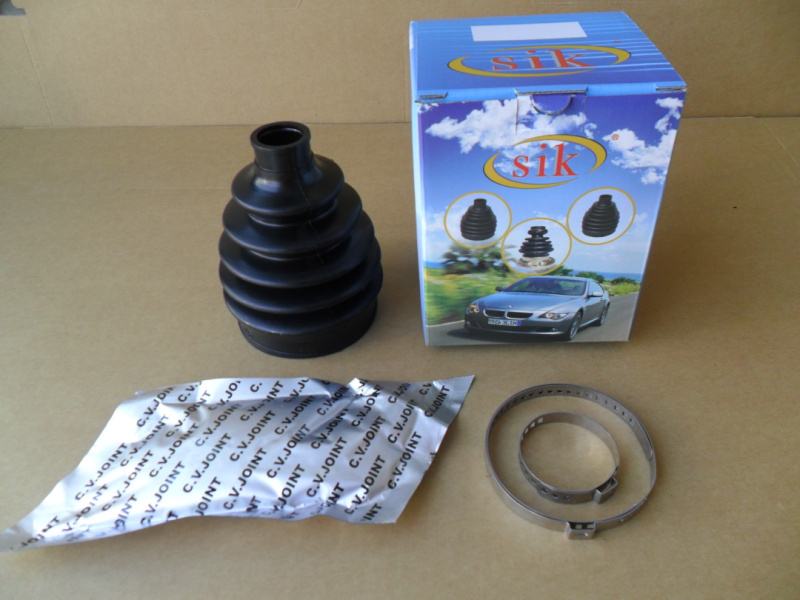
Do They Squeak When Driving Over Bumps?
Shock absorbers could be failing.
Everything in a car has a projected service life estimate, and once shock absorbers reach their lifecycle, they could start squeaking when being forced up as well as down by the car's suspension. You can diagnose this by pushing down on each corner of the car until you hear which one of them (or all) squeak. Then, you must replace the shock or the suspension component that needs lubed or replaced.
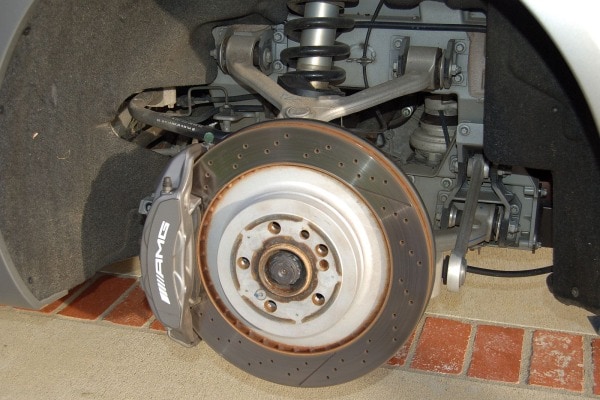
Related Discussions
- Why is My Car Squeaking - MBWorld.org
- Why Are My Brakes Squealing - MBWorld.org
- Possible Problems, Squeaking Sound - MBWorld.org
- Clicking, Squeaking Noise - MBWorld.org

